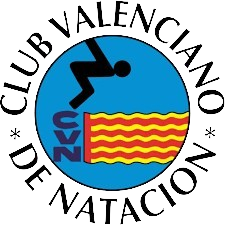Become a member of the Valencian Swimming Club
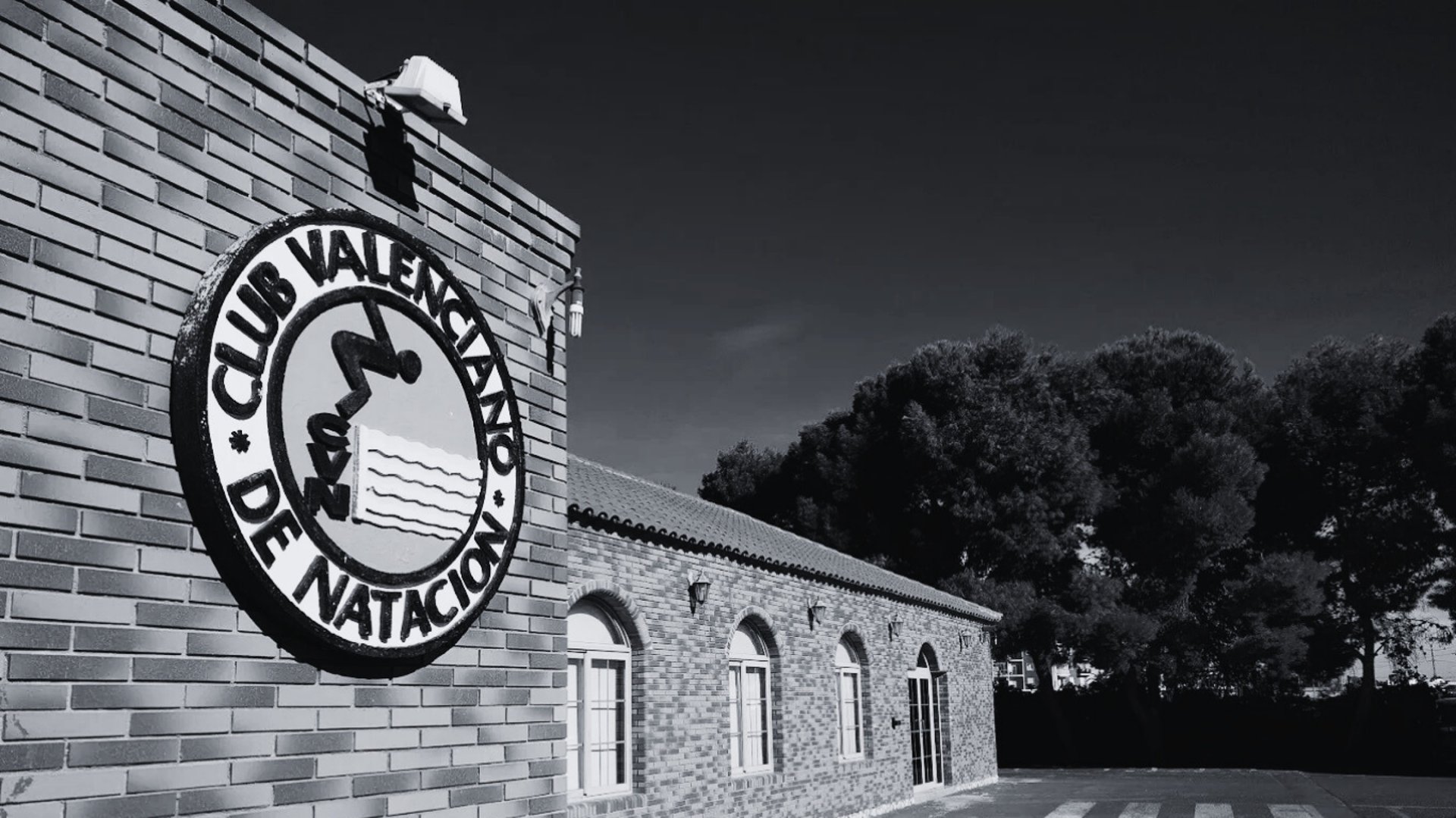
HISTORY
Key Milestones in Our History
Birth of a Vision:
“The Valencian Swimming Club was founded in November 1977 by Mr. José Senent Peña and Kiko Trullenque.”
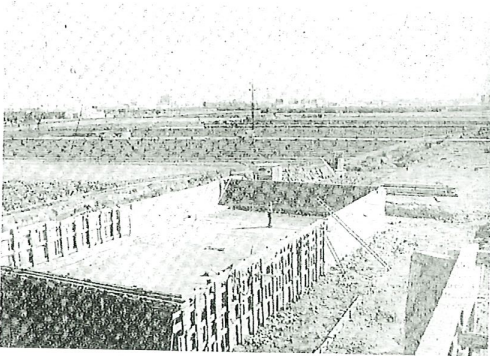

Given the lack of air-conditioned facilities in the Valencian Community, its goal was to create its own space that would allow for the continuous practice of swimming and the emerging sport of frontenis. Under the leadership of José Senent, the club not only designed its physical foundations, but also attracted innovative coaches such as Manuel Lacomba Belenguer and Luis Sanjuán, who revolutionized training systems.
In its first season (1977-1978), CVN already stood out in the Valencian senior championships and ranked among the top 10 clubs in Spain, with Rafa Senent emerging as the first national and international runner-up.


1982
Structural Consolidation and Leadership
The year 1982 marked a decisive turning point in the history of the Valencian Swimming Club. Following a period of transition after the death of founding president José Senent Peña, and after four years under the presidencies of José Royo Martín and José Ferrer Domínguez, characterized by “internal turmoil” and economic challenges, the organization required strong and strategic leadership. It was then that Manuel Silvestre Martínez, who had already served as vice president of the club since 1978, assumed the presidency of the Valencian Swimming Club for the first time.
International Consecration in Olympic Frontenis
1989
Manuel Silvestre Martínez takes over as president of Club Valenciano de Natación and CLEPSIDRA S.A., the company created to safeguard the entity's assets.
Under this new leadership, the Valencian Swimming Club not only found institutional stability, but also consolidated its sporting achievements. In the frontenis section, a sport that was already booming in Valencia, the club reached a significant milestone by winning the prestigious Division of Honor in the pre-Olympic category. This achievement not only demonstrated the growing potential of the frontenis section, but also heralded the future national and international successes that this discipline would bring to the CVN. Silvestre's management, supported by numerous collaborators and boards of directors, laid the foundations for the promotion of education, sport, coexistence, and friendship among the club's families.
Between 1992 and 1997 was a period of consolidation and splendor for the Valencian Swimming Club, marked especially by significant international achievements and a strategic evolution in its management.
In 1992, the club's frontenis section reached the world and Olympic elite: María Ángeles Coll won a historic gold medal at the World Championships in Mexico in the Olympic category, while Rosa Martínez won a valuable silver medal at the prestigious Olympic Games in Barcelona.
The winning streak continued in 1993, when Rosa Martínez continued her winning streak, winning the Spanish and European Championships. For her part, Mª Ángeles Coll was not far behind, winning the Spanish runner-up title and the European Championship, also in the Olympic category. The men's frontenis team, with talents such as Fredy Santonja, Javier Ribas, Martínez, Clemente, Ribas, and Herrero, was proclaimed Spanish champion. This success extended to the national level, where Herminio Clemente and José Martínez were selected for the Spanish team, crowning themselves European Champions.
In swimming, 1993 brought renewed momentum with the addition of Salvador González as coach of the first team and Alfredo Ballester at the helm of the School. Names such as Calvo, Cirujeda, and Pajarón quickly made their mark, with the latter standing out by winning a gold medal in the Spanish Junior Championship.
The club's organizational capacity was fully demonstrated in 1994, when the facilities of the Valencian Swimming Club hosted the Spanish Olympic Frontenis Championship, an event that was described as a “great organizational success.”
As for the club's management, following the presidency of Mr. Francisco Serrano, which began in 1991, and a period with Manuel Silvestre Martínez back at the helm until 1994, Mr. José Berbegal took over as president in 1995, marking the beginning of a period of stability and continuity. During this period, until 1997, the club was already consolidating its dominance in the Spanish Paleta Championship. Successes in frontenis were a constant, with Spanish and European Championships in the Olympic modality (both men's and women's), as well as multiple regional leagues.
This five-year period culminated in a historic achievement in 1997: Héctor Berbegal not only won the Spanish Youth Championship, but also became the first Spanish World Champion in pelota. This extraordinary milestone, coupled with the appointment of Manuel Lacomba, a key figure in the club's history since its inception, as Vice President of the Valencian Swimming Federation in 1996, underscored the sporting excellence and solid institutional leadership that the Valencian Swimming Club had cultivated and consolidated during these fruitful years.
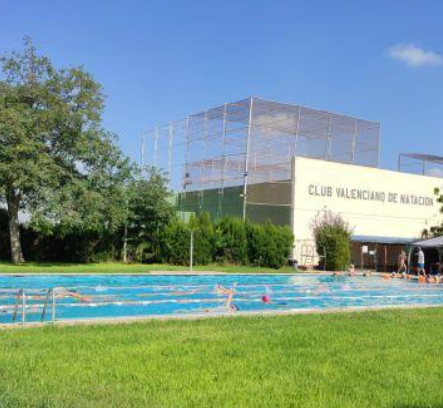

1998
Continuity of Success and Strategic Commitment to the Elite
The period between 1998 and 2001 consolidated the success of the Valencian Swimming Club, marked by an uninterrupted string of victories in frontenis and the launch of an ambitious swimming initiative.
During these years, the club maintained its dominance in the Spanish Paleta Championship, an achievement that lasted until 2002, reaffirming CVN's hegemony in this discipline. Successes in frontenis were constant and multifaceted, with numerous Spanish and European Championships won in the Olympic modality, in both men's and women's categories, as well as dominance in regional leagues and provincial cups, highlighting the high quality and continuity of its training programs.
The year 2001 marked a fundamental milestone with the launch of the “2001-2004 Project” in the swimming section. This strategic initiative was designed with the clear goal of propelling the club's swimmers towards events of the highest international importance, such as the European Championships in Madrid and the culminating 2004 Athens Olympics. To promote this ambitious goal, the club brought in Fernando Tejero, a coach of recognized prestige on the national and international swimming scene.
The results of this strategic move were immediate. At the Spanish Championships, CVN swimmers won silver medals thanks to Marcos Rivera, and valuable bronze medals thanks to Merche Peris and Alfonso Uruburu. These outstanding performances, together with the participation of other athletes such as Pajarón, Chapa, Ferrer, López, and Capelo in the “A” finals, positioned the Valencian Swimming Club as the sixth team in the national swimming rankings, laying the foundations for future expansion and promotion to the elite of Spanish sport.
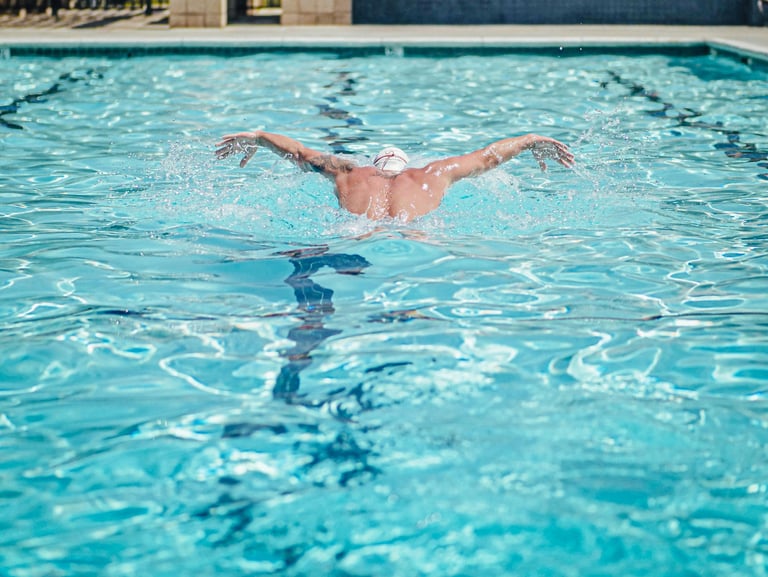

TO BE CONTINUED...
CONTACT US
Camino viejo de Carpesa a Moncada
+34 961850360
info@clubvalencianodenatación.com
Opening Hours: 08:00 – 22:00
SPORTS
CLUB
MEMBER
